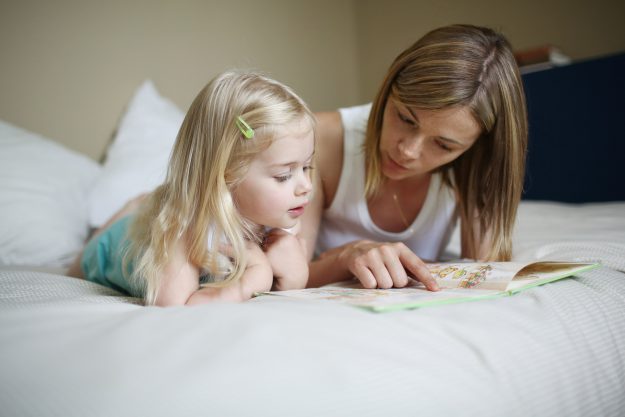Should you teach your child more than one language?
Learning more than one language at a time can be confusing for you, but probably not for your kid.

There are many myths surrounding the idea of teaching your newborn more than one language at a time, ranging from the self-deduced notion that it can be confusing for your child when learnt together, to the misconception that they will mix the two languages up because they simply can't tell them apart. These are just myths or rumours that most often surface from exceptional cases or individual assumptions, but we're about to give you the low-down on whether children can indeed grow to be effectively multilingual, and whether this is good for your child.
They can tell languages apart
In fact, studies have suggested that children begin to differentiate between languages and words as early as in the womb. As foetuses, they are able to hear the distinct rhythm of speech and sound that's happening on the outside of the body, and can recognise the general difference between the way one language flows from another. Even if it seems as if your child is mixing different languages to produce a sentence, you'll probably notice that their grammar corresponds to one particular language, while foreign vocabulary is implemented to replace words they have difficulty expressing in the home language, and not because they are unaware of the differences.
They learn language quickly
It has been a long-standing debate in linguistics regarding the notion that children learn languages faster than adults can. This is why many people believe teaching your children more than one language at a time when they are still young will turn out to be more effective than waiting for them to be proficient in their native language before starting to teach another. The critical period hypothesis is another widely debated topic that is largely accepted to be true, claiming that children learn language at an exponential rate during the earlier years of their lives, which then plateaus as they grow older. There are many factors that could affect this observation, including the environment they are exposed to at an early age and the styles of learning in school. However, it seems like there is a general consensus by experts that it's best to teach your children languages as early as possible.
Benefits of multilingualism
There are many proven advantages to multilingualism that your child will benefit from in the long run. Firstly, it will be much easier for them to learn a foreign language in the future if they are already proficient in languages with distinct grammar structures, such as English and Chinese. It seems as if there are also multiple cognitive advantages to knowing more than one language. These include multi-tasking, working memory and inhibitory control, which are all skills useful for the completion of everyday tasks. In addition, studies have shown that multilingual adults experience a delayed cognitive ageing process of about 3-4 years, suggesting that being proficient in more than one language can have protective effects against ageing. Teaching your child two languages or more can indeed bring about advantages that are more significant than you think.
We definitely can't tell you how to raise your child, but we can say for sure that it appears as if knowing more than two languages from an early age does not pose as big a problem as it is said to do, and additionally plays a huge role in the growth of your child's mental well-being. Well, are you convinced yet?
Dione Chen
Photo: Getty Images
Read more:
Motherhood Woes: Can ‘intense parenting’ lead to depression?
Parenting 101: 10 Tips for first-time mothers
Food Art: Fun school lunchbox ideas to make for your kids



